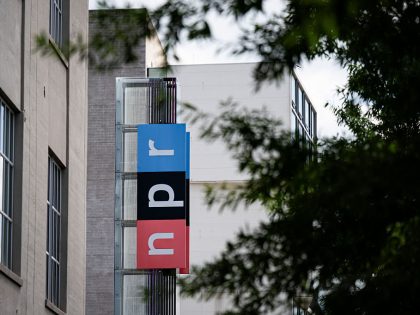
We Need Public Broadcasting
The Right has finally managed to gut public broadcasting. Our already anemic access to news, education, and culture has taken a massive blow.
Page 1 of 2Next
Alexander Billet is a writer and critic based in Los Angeles. He is the author of Shake the City: Experiments In Space and Time, Music and Crisis and has contributed to Los Angeles Review of Books, Salvage, Protean, Chicago Review, and other outlets. Read more of his work at alexanderbillet.com.

The Right has finally managed to gut public broadcasting. Our already anemic access to news, education, and culture has taken a massive blow.

Today’s ruling class treats all culture as either commodity or plaything. We should not accept either definition.

Over the last decade, streaming services like Spotify have become increasingly dominant, sucking up all the profits at the expense of the musicians who make the work. Now, the newly formed Union for Musicians and Allied Workers is mobilizing to ensure musicians receive the royalties they’re owed.

Like every other industry under capitalism, the music industry is currently organized to make a small handful of people very rich while the vast majority of working musicians benefit little from their recordings and performances. The only way to change that is through collective action.

Earlier this year, Spotify announced it would give artists and record labels a boost in promotion if they accepted a lower royalty rate — rates that are already abysmally low. Between fights over compensating artists and the unionization of podcast company workers, it’s clear that even the world of digital streaming has class conflict at its heart.

The anti-communist campaigns of the late 1940s attacked the Left on every front. As beacons of a broad-based cultural radicalism and messengers for change, American folk singers quickly found themselves in the FBI’s crosshairs.

A new book on American punk paints the movement as the last gasp of left-wing cultural resistance in the 1980s.

Both hip-hop and punk bloomed out of the social collapse created by the economic crisis of the 1970s. But where is the music of our twenty-first-century disaster?

Why we all hate celebrities right now.

Legendary singer-songwriter John Prine loved people and hated cruelty. It is a simple but beautiful motivation for music, and the world is poorer for his no longer being in it.

With classic rock riffs and fuzzed-out melodies, Philadelphia’s Sheer Mag wears their left-wing politics on their sleeves.
On a forgotten back-and-forth between Nina Simone and John Lennon.

In cities across America, housing has played a key role in maintaining and deepening inequality. Nowhere is this more so than in Los Angeles, with its homelessness crisis, soaring rents, and luxury condos. Nithya Raman’s grassroots campaign for city council is pushing back against the developers, boosters, and lobbyists that keep it this way.

What does Marxism in music look and sound like? Andy Gill, the guitarist and primary mover behind Gang of Four who died on Saturday, gave us a very good example.

Ballet and classical music shouldn’t belong to the elite. The Paris Opera’s free, outdoor performances for striking French workers point to a radical redefinition of what work, play, and the arts could be under socialism.

Country music doesn’t deserve its right-wing reputation — its roots lie with the hopes and travails of working people.

From Lebanon to Haiti to Chile, the world is in revolt. And the music that makes up the soundtracks to those revolts can point to a radically democratic, egalitarian, and joyful world.

A recent viral video of a homeless opera singer in Los Angeles led to a happy ending. But it’s a reminder that capitalism prevents millions of our greatest talents (and everyone else too) from reaching their immense creative potential.

Joe Biden hasn’t changed much over the years. So it’s safe to assume that the version of him that you see in a recently surfaced video threatening to jail rave promoters and destroy our right to culture is the version of him we would get in a Biden White House.

Though their time as a band was brief, the Monks represent a “what if” of the convergence between GI resistance and the 1960s counterculture.